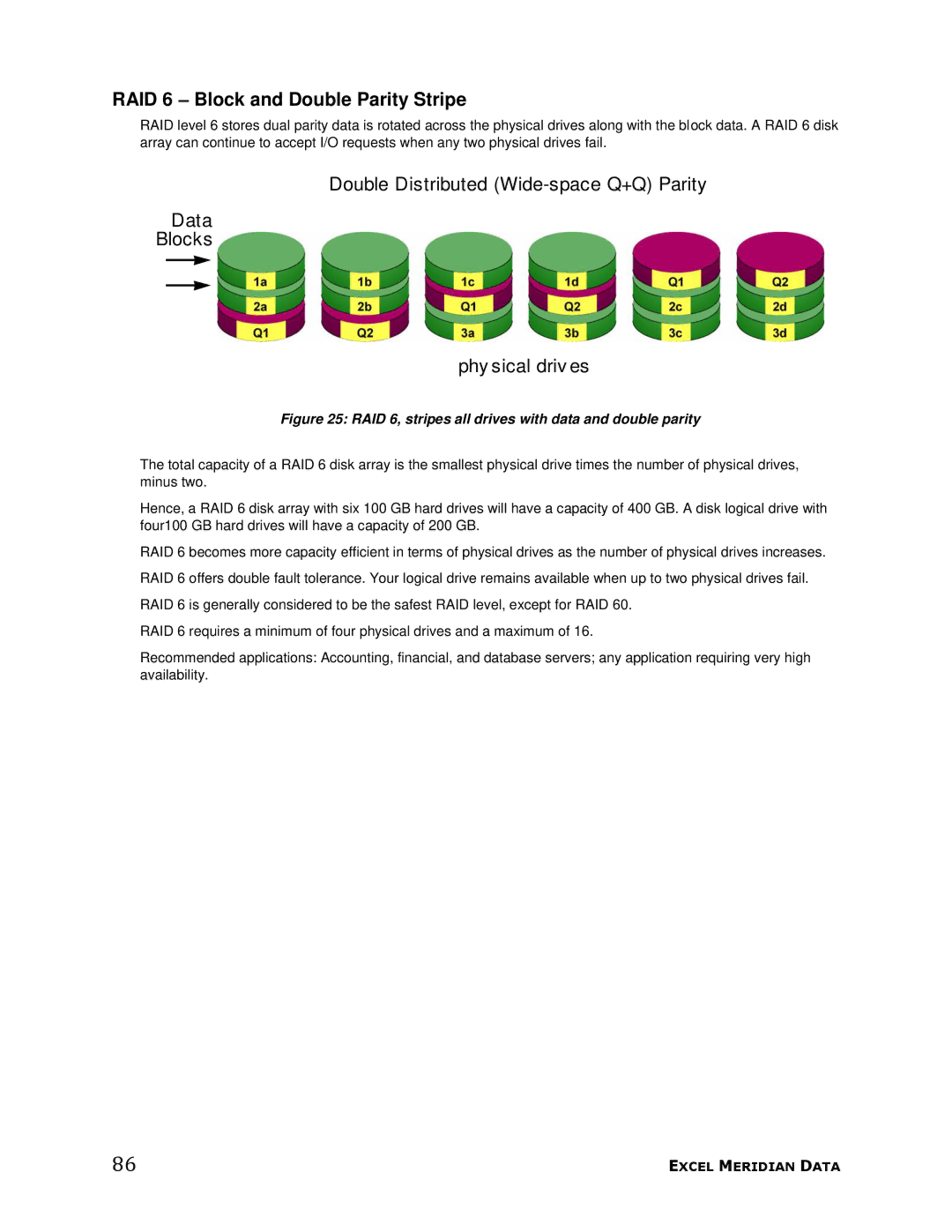
RAID 6 – Block and Double Parity Stripe
RAID level 6 stores dual parity data is rotated across the physical drives along with the block data. A RAID 6 disk array can continue to accept I/O requests when any two physical drives fail.
Double Distributed
Data
Blocks
phy sical driv es
Figure 25: RAID 6, stripes all drives with data and double parity
The total capacity of a RAID 6 disk array is the smallest physical drive times the number of physical drives, minus two.
Hence, a RAID 6 disk array with six 100 GB hard drives will have a capacity of 400 GB. A disk logical drive with four100 GB hard drives will have a capacity of 200 GB.
RAID 6 becomes more capacity efficient in terms of physical drives as the number of physical drives increases.
RAID 6 offers double fault tolerance. Your logical drive remains available when up to two physical drives fail.
RAID 6 is generally considered to be the safest RAID level, except for RAID 60.
RAID 6 requires a minimum of four physical drives and a maximum of 16.
Recommended applications: Accounting, financial, and database servers; any application requiring very high availability.
86 | EXCEL MERIDIAN DATA |
